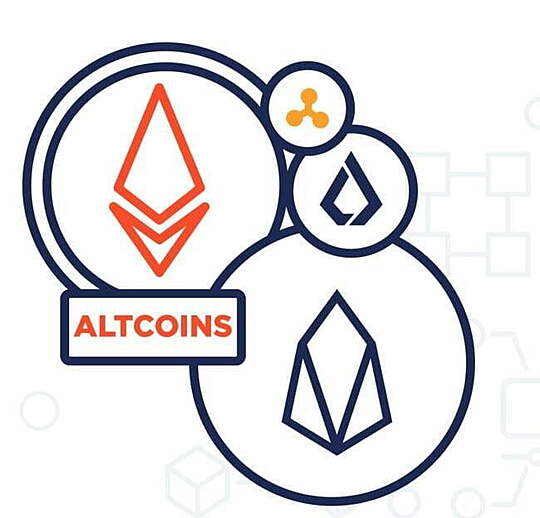
CryptoCurrency
Cryptocurrency is an internet-based medium of exchange that uses crypto-graphical functions to conduct financial transactions. It leverage blockchain technology to gain decentralization, transparency, and immutability.
The most important feature of a cryptocurrency is that it is not controlled by any central authority: the decentralised nature of the blockchain makes crypto currencies theoretically immune to the old ways of govt control and interference.
Cryptocurrencies can be sent directly between two parties via the use of private and public keys. These transfers can be done with minimal processing fees, allowing users to avoid the steep fees charged by traditional financial institutions.
TDS on Virtual Digital Assets : Crypto
Taxation on Virtual Digital Assets : Crypto
"There are now more than 3000 cryptocurrencies in existence, with each falling into one of the three major categories: altcoins, tokens, and Bitcoins"
Here, we will explain the differences between these cryptocurrencies. We will also look at some common subtypes used for cryptocurrencies, such as ‘stablecoins’ and ‘privacy coins’. After reading this, you should understand all the significant types of crypto and differentiate between them easily. Let’s get started!
The Three main types of Cryptocurrency:

BitCoin
Bitcoin (BTC) was the first cryptocurrency to be created and remains the world’s leading cryptocurrency by market cap. Bitcoin is a global peer-to-peer electronic payment system that allows parties to transact directly with each other without the need for an intermediary or institution such as a government or any bank. The Bitcoin whitepaper, which outlined how this revolutionary new currency would work, was released in 2008, and the Bitcoin network launched in 2009. Since its launch, Bitcoin has experienced no downtime, allowing anyone to transfer value at any time and from anywhere. The transaction time has also improved a lot in recent years. Bitcoin’s creator goes by the pseudonym, Satoshi Nakamoto. Their real identity remains unknown to this day. It is also unclear whether Nakamoto represents a single person or a group of individuals who worked on the Bitcoin project. Bitcoin is often regarded as the digital alternative to both fiat currencies and gold. That is because Bitcoin can be spent and saved just like traditional money, but is also a scarce finite resource and thus a good store of value like gold.
AltCoins
The release of the Bitcoin whitepaper & its open-source code in 2008 laid the foundation of a new universe where thousand of a new world was yet to be founded. So, we got thousands of other cryptocurrencies and similar coding marvels to be created. These new coins are termed ‘alternative coins’ or ‘altcoins’ as an alternative to Bitcoin. While some has identical purpose to Bitcoin, other cryptocurrency types such as altcoins encompass a wide range of different uses. For example, Ethereum (ETH), the world’s first programmable blockchain, enables developers to build and deploy decentralised applications (DApps) and smart contracts.
There are at least 11,000 altcoins in existence(as of 11th September 2021), according to data from CoinMarketCap, and the top 5 altcoins by market cap are Ethereum, Ripple (XRP), Bitcoin Cash (BCH), Litecoin, and EOS.IO (EOS). Like Bitcoin, all altcoins can operate independently on their networks utilising publicly accessible distributed ledger technology (DLT). Blockchain technology is the most famous and commonly used type of DLT, introduced to the world by still unknown Satoshi Nakamoto via Bitcoin. While all coins use DLT, slight variations in the whitepaper, i.e. underlying code of each protocol, are what gives altcoins their unique attributes.

IOTA is specifically designed to be a new data transfer and transaction settlement layer for the machine economy and the Internet of Things (IoT).
IOTA also uses its proprietary distributed ledger technology called the Tangle. Litecoin (LTC) is a peer-to-peer currency and global payment network similar to Bitcoin. Litecoin’s creator Charlie Lee states that his intention was for Litecoin to be a complementary cryptocurrency to Bitcoin.

Tokens
Unlike Bitcoin and Altcoins, tokens cannot operate independently. They're dependent on the network of another DLT, such as cryptocurrency. They do not have their underlying blockchain product but instead are built on top of an existing cryptocurrency's blockchain. Data from CoinMarketCap shows that at least 1496 tokens exist, deployed on the blockchain platforms of 36 cryptos. Here are few examples of different types of cryptocurrencies that host tokens include:
Tokens are easier to create as building a blockchain from scratch is not needed. “Tokenise the world” means the ability of tokens to represent almost any asset. Tokenisation of stocks, commodities, fiat currencies, other cryptocurrencies, property, etc., have already been achieved. Trust me, we have barely even scratched the surface yet as to what else can be tokenised.
Token Types
The top 5 tokens by market cap are Tether, UNUS SED LEO, Chainlink, Huobi Token, and Maker, all of which are deployed on the Ethereum blockchain apart from Tether which takes the top spot.
Common terms used to categorize cryptocurrencies
While we are on the topic of different types of cryptocurrency, we may as well look at some of the various subtypes that you will likely come across in the crypto world. Here are four terms commonly used to categorise cryptocurrencies that have specific characteristics:

History of Cryptocurrency
In 2008, an anonymous programmer or a group of programmers under the alias Satoshi Nakamoto introduced the Bitcoin whitepaper. Satoshi described it as a 'peer-to-peer electronic cash system.' Its beauty was an utterly decentralised control, meaning no servers were involved and no supreme controlling authority or government. The concept posses several resembles with peer-to-peer networks for file sharing. Millions believe that cryptocurrency is the hottest investment opportunity available. There are stories of people becoming millionaires through their Bitcoin investments. Bitcoin is the most recognisable digital currency to date, and this year on 14th April, one BTC was valued at Rs.48,29,253/-. Ethereum is the second most valued cryptocurrency, has recorded the fastest rise a digital currency ever demonstrated. In Feb 2017, it was valued at Rs.773 & in May 2021, it was Rs. 3,06,000/- It's value has increased by at least 40,000 per cent. When it comes to all cryptocurrencies combined, their market cap soared by more than 30,000 per cent since mid-2016.
Legality of Cryptocurrency
Cryptocurrencies are mainstream now! Govt. & other Law enforcement agencies are figuring out the concept of crypto coins and where they fit in existing financial regulations and legal frameworks. With the introduction of Bitcoin, a completely new paradigm was created. Decentralised, self-sustained digital currencies not controlled by any singular entity that doesn’t exist in any physical shape or form were always set to cause an uproar among the regulators. Many concerns have been raised regarding cryptocurrencies’ decentralised nature and their ability to be used almost completely anonymously. The authorities worldwide are worried about the cryptocurrencies’ appeal to the traders of illegal goods and services as their use in money laundering and tax evasion schemes can rise. As of September 2021, Bitcoin and other digital currencies are outlawed only in Algeria, Bolivia, China, Colombia, Egypt, Indonesia, Iran, Nepal, North Macedonia, Russia, Turkey and Vietnam. Other jurisdictions, however, do not make the usage of cryptocurrencies illegal, but the laws and regulations can vary drastically depending on the country.
Types of Cryptocurrencies:
You won't be able to count the number of cryptocurrency currently circulating in market. There are numerous organisation and group of people keeps on launching a new Currency every day. Some of the currency that are recognised globally are:

Bitcoin
Bitcoin is a cryptocurrency. It is a decentralised digital currency without a central bank or single admin that can be sent from user to user on the peer-to-peer bitcoin network without the need for intermediaries.

Ethereum
Ethereum is an open source, public, blockchain-based distributed computing platform and operating system featuring smart contract functionality. It supports a modified version of Nakamoto consensus via transaction-based state transitions.

Ripple
Ripple is a real-time gross settlement system, currency exchange and remittance network created by Ripple Labs Inc., a US-based technology company.

BITCOIN CASH
Bitcoin Cash is a cryptocurrency that is a fork of Bitcoin. Bitcoin Cash is a spin-off or altcoin that was created in 2017. In 2018 Bitcoin Cash subsequently split into two cryptocurrencies: Bitcoin Cash, and Bitcoin SV. Bitcoin Cash is sometimes also referred to as Bcash.

NEM
NEM is a peer-to-peer cryptocurrency and blockchain platform launched on March 31, 2015 written in Java.

Litecoin
Litecoin is a cryptocurrency released under the MIT/X11 license. Creation and transfer of coins is based on an open source cryptographic protocol and is not managed by any central authority. Litecoin was an early bitcoin spinoff or altcoin, starting in October 2011.

IOTA
Almost before we knew it, we had left the ground. All their equipment and instruments are alive.

NEO
Almost before we knew it, we had left the ground. All their equipment and instruments are alive.

Dash
Almost before we knew it, we had left the ground. All their equipment and instruments are alive.

Qtum
Almost before we knew it, we had left the ground. All their equipment and instruments are alive.

Monero
Almost before we knew it, we had left the ground. All their equipment and instruments are alive.

Ethereum Classic
Almost before we knew it, we had left the ground. All their equipment and instruments are alive.
The Crypto's Story
Come out of Stone Age and know the moves
There are a lot of different options when it comes to buying Bitcoins. For example, there are currently almost 1,800 Bitcoin ATMs in 58 countries. Moreover, you can buy BTC using gift cards, cryptocurrency exchanges, investment trusts and you can even trade face-to-face.
When it comes to other, less popular cryptocurrencies, the buying options aren’t as diverse. However, there are still numerous exchanges where you can acquire various crypto-coins for flat currencies or Bitcoins. Face-to-face trading is also a popular way of acquiring coins. Buying options depend on particular cryptocurrencies, their popularity as well as your location.
Cryptocurrencies are digital, which entails a completely different approach, particularly when it comes to storing it. Technically, you don’t store your units of cryptocurrency; instead it’s the private key that you use to sign for transactions that need to be securely stored.
There are several different types of cryptocurrency wallets that cater for different needs. If your priority is privacy, you might want to opt for a paper or a hardware wallet. Those are the most secure ways of storing your crypto funds. There are also ‘cold’ (offline) wallets that are stored on your hard drive and online wallets, which can either be affiliated with exchanges or with independent platforms.

What can I do with cryptocurrency?
Besides buying and selling cryptocurrency, you can…
Shop: Over 100,000 merchants accept Bitcoin including Microsoft, Overstock, and NewEgg.
Dine out: Worldwide, you can dine in or carry out at thousands of restaurants using Bitcoin or Bitcoin Cash.
Donate to causes: GiveCrypto.org is a nonprofit that distributes cryptocurrency to people living in poverty. The Internet Archive, The Mozilla Foundation, and The Wikimedia Foundation (just to name a few) also all accept donations in Bitcoin.
Gift it: Cryptocurrency makes a great gift for friends and family.
Tip someone: Authors, musicians, and other online content creators sometimes leave Bitcoin addresses or QR codes at the end of their articles. If you like their work, you can give a little crypto as a way of saying thanks.
Travel the world: Because cryptocurrency isn’t tied to a specific country, traveling with crypto can cut down on money exchange fees. There’s already a small but thriving community of self-titled “crypto nomads” who primarily, or in some cases exclusively, spend crypto when they travel.
Is cryptocurrency legal?
Yes, crypto is legal to buy, sell, send, receive, and own in most parts of the world. The full list of countries we support includes the USA, UK, Australia*, Canada*, Singapore*, and the following countries in Europe:
| Austria | Czech Republic | Ireland | Monaco | San Marino |
| Belgium | Denmark | Italy | Netherlands | Slovakia |
| Bulgaria | Finland | Latvia | Norway | Slovenia |
| Croatia | Greece | Liechtenstein | Poland | Spain |
| Cyprus | Hungary | Malta | Portugal | Sweden |
| Switzerland |
In some countries there is still a lot of confusion in trading so countries like Canada, Australia, and Singapore currently allows you to buy crypto but not sell it.
Which cryptocurrency should I buy?
You can buy Bitcoin (BTC), Litecoin (LTC), Ethereum (ETH), Bitcoin Cash (BCH), and Ethereum Classic (ETC). While we can’t recommend one currency over another, we can still share a few approaches that can help you decide which crypto is right for you.
One simple option is buy some of each currency. It’s a straightforward way to get started without playing favourites.
Another good option is to ask yourself what you’re hoping to do with crypto and choose the currency that will help you achieve your goals. For example, if you want to buy a T-shirt with crypto, then Bitcoin might be a good option because it is the most widely accepted cryptocurrency. On the other hand, if you want to play a digital card game, then Ethereum is a popular choice.
How is cryptocurrency different from regular money?
Cryptocurrencies and regular money share some traits — like how you can use them to buy things or how you can transfer them electronically — but they’re also unique in interesting ways. Here are a few highlights.


